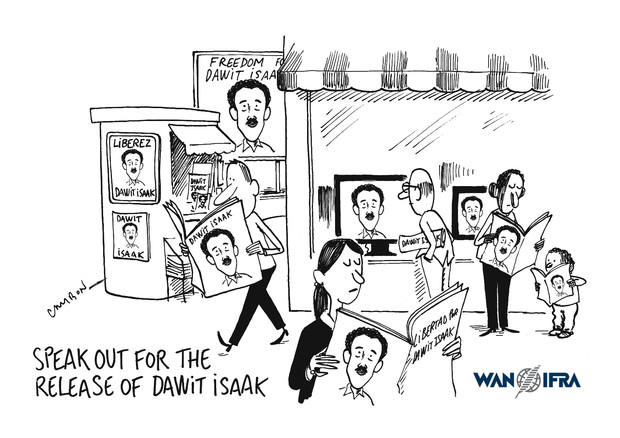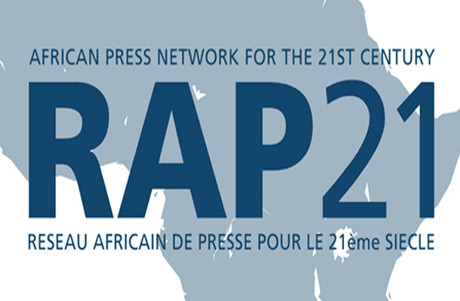Mr Isaak, a journalist with dual Eritrean-Swedish citizenship and one of the founders of Eritrea's first independent newspaper, Setit, was arrested and imprisoned without charge in September 2001 as part of a crackdown against the independent media. His whereabouts remain unknown to this day.
Eritrean by birth, Mr Isaak was forced to flee his native country in 1987 and arrived in Sweden as a beleagured refugee during Eritrea's bloody war for liberation. He became a Swedish citizen in 1992, and later returned to Eritrea when the country finally gained independence in 1996. Eager to develop the country's independent press, Mr Isaak co-founded the country's first independent newspaper, Setit, which would rise to national prominence as a professional paper and gain a reputation for investigative reporting which often focused on abuse of power by the government.
In May of 2001, a group of 15 cabinet members (prominent reformist politicians later dubbed the G-15), published an open letter to the government demanding democratic reform, and a thorough investigation of the events leading up to Eritrea's recurring war with Ethiopa. The letter was published by the free press, most notably by Mr Isaak's paper, Setit, which also went on to publish a series of similar open letters to president Isayas Afeworki demanding sweeping democratic reforms. The government acted in swift retaliation following the published demands of G-15, and by September, had effectively suspended all civil liberties in Eritrea.
On 23 September 2001, all private press outlets in the country were officially shut down, and 11 of the G-15 politicians were arrested, along with Dawit Isaak and 13 other newspaper owners, editors and journalists. To date, none have been formally charged or tried, and Mr Isaak and the other journalists and politicians imprisoned with him have all been branded as traitors, accused of receiving financial aid from abroad, an act of criminal treason according to Eritrean press laws. According to reports, four of the journalists that were detained in 2001 have since died in prison.
A controversial Swedish interview with Eritrean president Issayas Afwerki drew the attention of human rights watchdog organisations when he declared unceremoniously that there were no plans to release Mr Isaak, nor to conduct a trial in which the journalist would be formally charged. The interview, which was broadcast on 26 May 2009, stirred international controversy when the Eritrean president dismissed the issue of Mr Isaak's imprisonment altogether, stating without qualm: "We will not have any trial and we will not free him. We know how to handle his kind."
WAN-IFRA calls on the world's press to publicise Dawit Isaak's case as widely and as frequently as possible to give maximum exposure to the injustice of his incarceration.
In calling for the liberation of Dawit Isaak, the world's press sends a clear message to the Eritrean authorities - and to repressive regimes thoughout the world - that imprisoning journalists for simply doing their job will not be tolerated.
Visit the Free Dawit Isaak campaign website.




